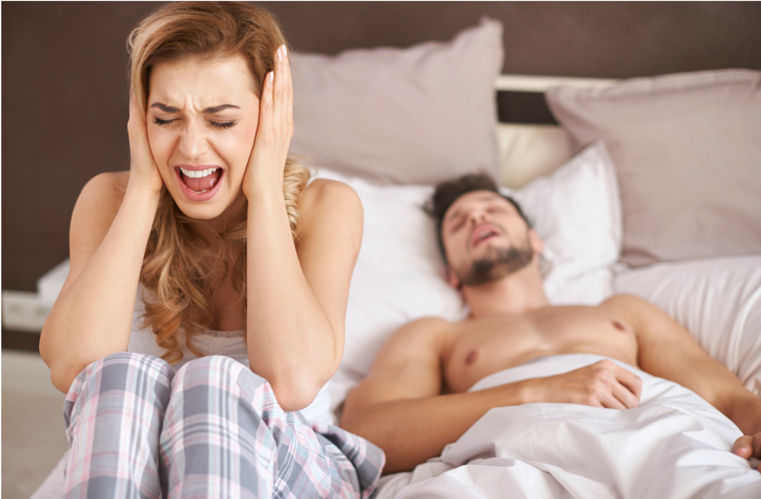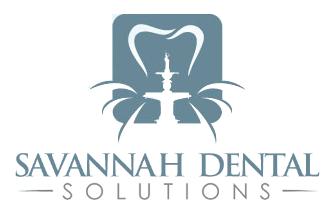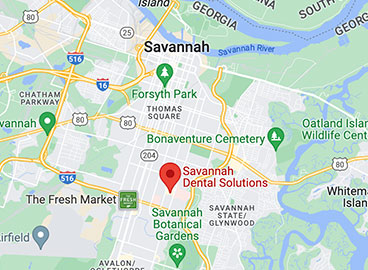Obstructive sleep apnea, or OSA, is a chronic medical condition that affects an estimated 18 to 30 million adults in the United States. It causes sufferers to stop breathing for short periods during the night, increases the risks for many health conditions, and can even lead to sudden death.
One of the most common symptoms is snoring, yet snoring can also be caused by anything from allergies or a cold to the shape of your sinuses. How can you tell if you have sleep apnea, and what can you do about it if you do? Here is what you should know.

Signs and Symptoms of Sleep Apnea
Besides snoring, sleep apnea has many signs. Each person is different, so you might experience all, some, or none of the following symptoms:
- – Excessive daytime sleepiness
- – Noticeable pauses in breathing during sleep
- – Nighttime teeth grinding
In mild cases, these symptoms may be nearly undetectable, or easily chalked up to other things such as a poor night’s rest. In particularly bad cases, on the other hand, some people report that they wake during the night feeling unable to catch their breath, or like they are drowning. Some feel physically unable to stay awake during the day, even when they seem to have gotten plenty of sleep.
TMJ Indicators
TMJ, or temporomandibular joint disease, is not always related to sleep apnea. However, if you have symptoms of TMJ, it may be worth investigating whether sleep apnea is the cause, particularly if you also have other signs of the condition. Here are some common symptoms of TMJ:
- – Teeth grinding or clenching
- – Worn or chipped teeth
- – Worn away tooth enamel
- – Increased dental sensitivity
- – Muscle tightness in the jaw, neck, and shoulders
- – Earaches
- – Headaches
- – Facial pain
Sleep Study
The only way to know for sure if you have sleep apnea is to undergo a sleep study. Traditionally, these have been held in medical facilities known as sleep labs. You will be asked to arrive in the evening, typically between 8:00 and 9:00 p.m. You should bring your medications, comfortable sleeping attire, and your morning hygiene supplies.
After checking in and filling out forms, you will change clothes and be hooked up to a variety of wires. Electrodes are used to monitor your sleep stages throughout the night, as well as your facial and body movements. You will also wear an EKG monitor to track your heart rate and rhythm, an oxygen sensor on your finger, and a nasal monitor to track your breathing. Finally, you might have elastic bands placed around your chest and stomach to monitor breathing effort and a microphone at your throat to check for snoring.
You will sleep in a provided hospital bed until early morning, typically around 6:00 or 7:00 a.m. Then you will be awakened by a tech, who will disconnect the monitoring devices, ask you to sign a few more forms, and escort you to the lab’s facilities for showering and morning hygiene. Your results will be sent to your doctor or dentist, who will discuss them with you at a follow-up appointment.
Home Sleep Tests
Although most sleep labs go out of their way to make patients as comfortable as possible, sleep studies are not much fun. In some cases, you might be able to conduct a home sleep test instead. This allows you to conduct your nighttime monitoring in the comfort of your own home and bed.
If you qualify for a home sleep test, you will receive a small monitoring system about the size of a telephone handset. Just connect the various monitoring devices as instructed before you go to sleep, and leave them on throughout the night. Home sleep tests do not include the electrodes used in lab-based sleep studies.
You will be instructed to use the monitoring equipment for one to three nights, depending on your individual circumstances. Then you will simply return the device to the coordinating office, receive your results, and share them with your dentist for follow-up.
Sleep Apnea Treatments
Sleep apnea is traditionally treated with a CPAP (continuous positive airway pressure) machine, which keeps your airway from collapsing during the night. Although these machines typically provide excellent results, many people struggle with breathing normally while using one. Others dislike the bulky equipment and elaborate setup, which can be especially difficult for frequent travelers.
There are other variations on the CPAP, but many people prefer a sleek and simple anti-snoring mouthpiece, also known as a sleep apnea mouth guard. Instead of a bulky machine, these mouthpieces are small and easy to carry. They look something like a football player’s mouth guard, and are designed to hold the mouth and jaw in alignment to prevent nighttime collapse.
Snoring and sleep apnea are complicated disorders, and should only be diagnosed and treated by a professional. If you show any signs or symptoms, please bring your condition to the dentist’s attention right away. With proper diagnosis and treatment, there is no reason to suffer any longer.
Married dentists Chad and Alexandra Schnabel welcome you to Savannah Dental Solutions. From caring children’s dentistry to high-tech cosmetic procedures and even full-mouth reconstruction, we blend the latest technology with traditional customer-oriented values. To start your journey to better oral health, call us today at (912) 354-1366.


